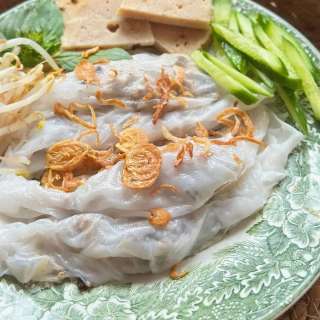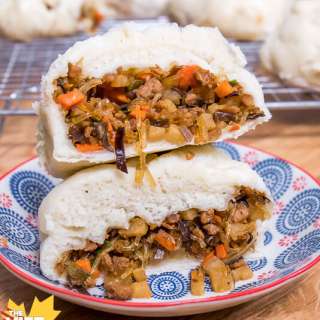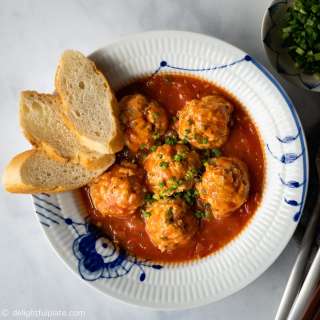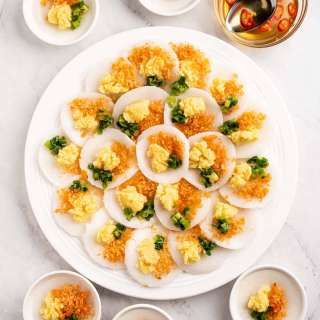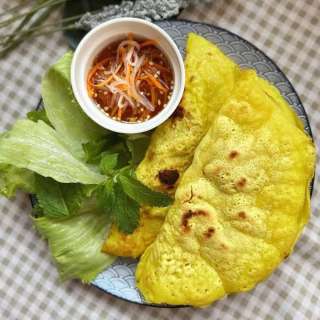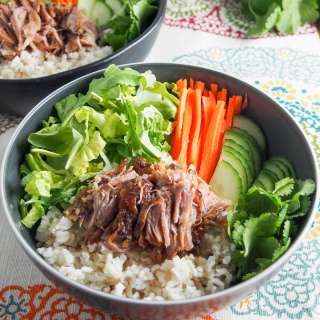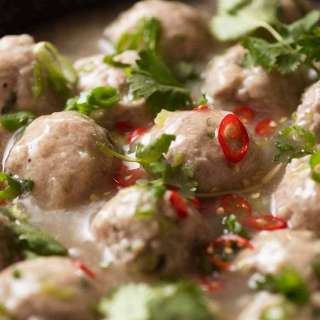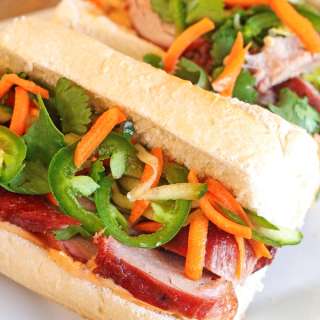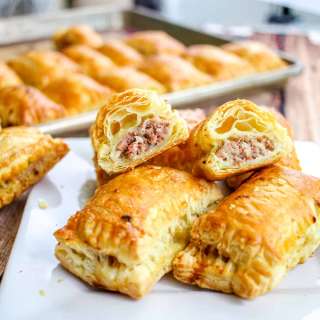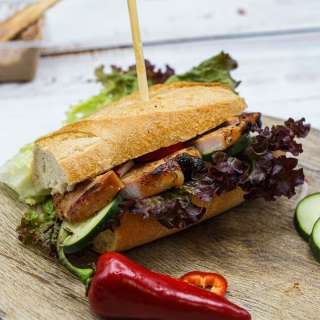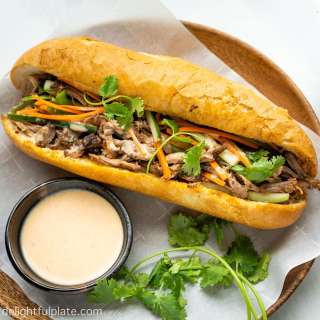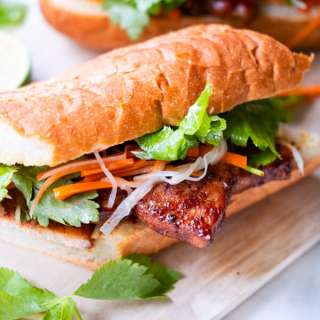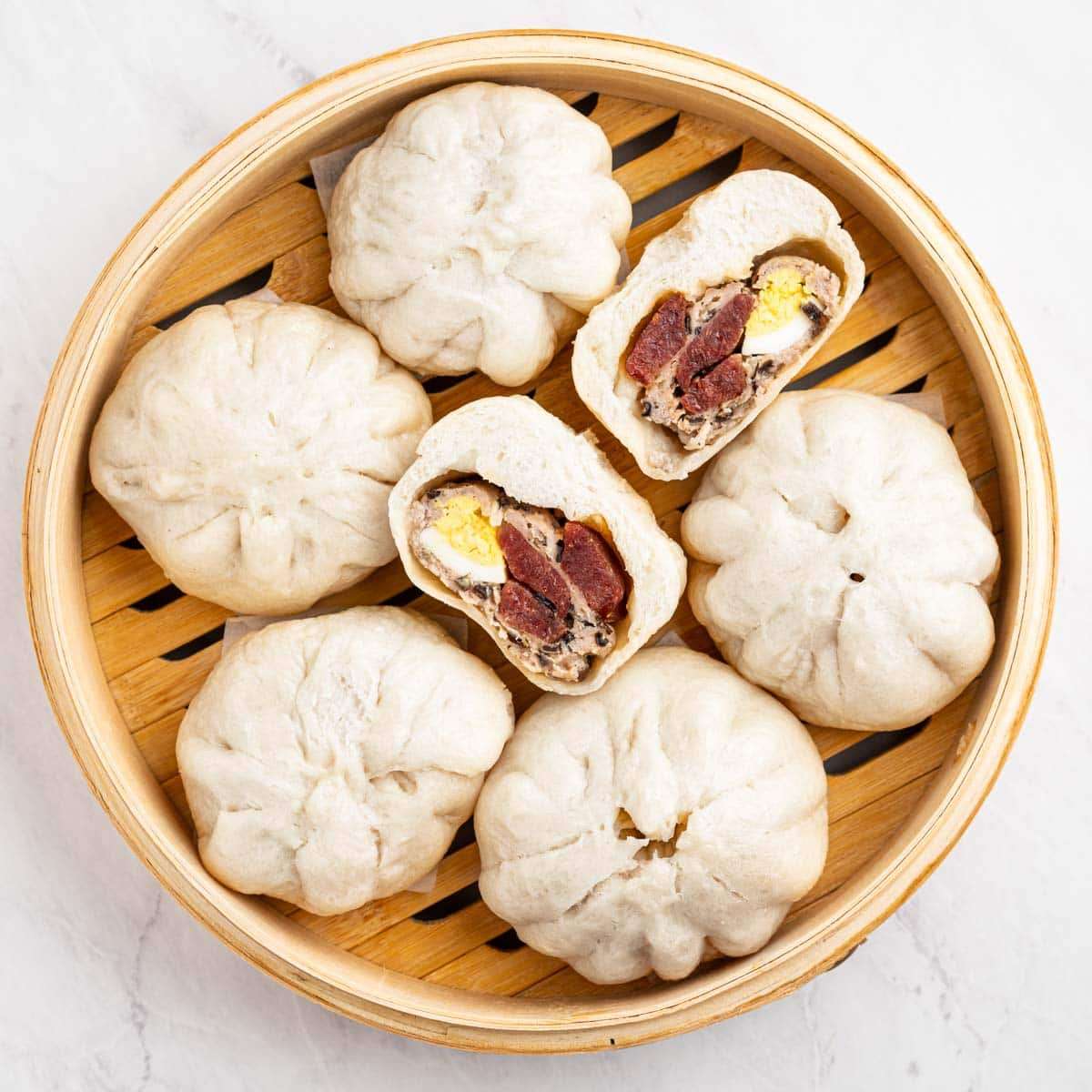
Authentic Bánh Bao (Vietnamese Steamed Pork Buns)
User Reviews
0
0 reviews
Unrated
-
Prep Time
35 mins
-
Cook Time
35 mins
-
Additional Time
1 hr
-
Total Time
1 hr 59 mins
-
Servings
12 buns
-
Calories
437 kcal
-
Course
Main Course, Breakfast
-
Cuisine
Vietnamese

Authentic Bánh Bao (Vietnamese Steamed Pork Buns)
Report
Banh bao are soft and fluffy Vietnamese steamed buns filled with a savory mixture of pork, eggs, and Chinese sausage. This easy banh bao recipe walks you through making the perfect dough and flavorful filling for a delicious homemade version that’s even better than the bakery!
Share:
Ingredients
For the Filling
- 6 hard-boiled eggs, cut in half or quarter or 12 quail eggs, kept whole
- 2 Chinese sausages (Lap Xuong) sliced
- ½ cup shallots chopped
- 2 cloves garlic minced
- ½ cup Jicama chopped
- ½ cup wood ear or shiitake mushrooms soaked and chopped
- 1 teaspoon salt
- 1 pound ground pork
- 2 teaspoons sugar
- 1 teaspoon chicken bouillon powder
- ½ teaspoon ground pepper
- 1½ tablespoon oyster sauce
- ½ tablespoon sesame oil
- 1 tablespoon cornstarch
For the Dough
- 4 cups all purpose flour
- 5 tablespoons cornstarch
- ½ cup sugar
- 1 (6oz) packet instant yeast (2¼ teaspoons)
- ½ teaspoon salt
- 1½ teaspoon baking powder
- 1½ cup warm milk
- 2 tablespoons vegetable oil
- 1 tablespoon vinegar (for steaming)
Instructions
Make the filling
- In a hot skillet over medium high heat, sauté the Chinese sausages without oil for 2 minutes on each side. Then, transfer the sausages to another plate and set it aside.
- To the same skillet, use a paper towel to wipe off the excess oil and add shallots, garlic, jicama, mushrooms, and salt. Sweat the vegetables for 3-4 minutes until translucent. Set this aside and let it cool completely.
- In a large bowl, combine ground pork, sugar, chicken bouillon powder, ground pepper, oyster sauce, sesame oil, and cornstarch.
- Once the vegetables are cooled, combine them with the ground pork mixture. Gently mix until well incorporated (but do not overmix.)
- Scoop 1 ½ tablespoons of the meat mixture and flatten it into a pancake shape. Add the egg and 2-3 slices of Chinese sausage into the middle and fold the meat around it into the shape of a ball. This will yield around 12-14 meatballs. Cover and refrigerate.
Make the dough
- Attach a dough hook to the stand mixer. In the stand mixer bowl, combine all-purpose flour, cornstarch, sugar, yeast, salt, baking powder, and warm milk.
- Start with the lowest speed for 1 minute until the ingredients are combined. Increase the speed to 3 and let it knead for 10 minutes, adding oil halfway through. The dough should be smooth, elastic, soft, pliable, and slightly sticky (if the dough is too sticky, you may need to add more flour and knead some more.) Cover and let it rest for 15 minutes.
- Lightly dust your hands and work surface. Then, knead the dough by hand for 1 minute, and form a ball. Divide it into 12-14 uniform pieces (about 2 oz each). Roll them into balls, cover them, and let them rest for an additional 15 minutes. (Pro tip: It's important to keep the dough covered when it is not in use to prevent it from drying out.)
Assemble the Banh Bao
- Use a roller to flatten the dough, leaving it slightly thicker in the middle with flattened edges. Place a meatball in the middle and create small pleats to wrap it. Repeat until all the meat and dough is used up.
- Cover and let the dough proof for 30 minutes.
Steam the buns
- In a steamer, add water and 1 tablespoon of vinegar. Bring to a boil. Arrange the buns in the steamer, leaving about an inch in between each. You may need to work in batches depending on the size of the steamer.
- Steam for 18 minutes. Then, turn off the heat, leaving the lid on, and let it sit for 3 minutes. (Pro tip: Quickly exposing the banh bao to air will cause them to deflate.)
- Serve warm. Enjoy!
Notes
- Interrupted while making these, or want to plan ahead?
- Cover your dough loosely and refrigerate. Come back within 24 hours, remove from the fridge, and resume rising.
- Use a kitchen scale for precise measurement of the dough ingredients (especially the flour) and dividing the dough portions. Achieve a soft and pliable dough by carefully measuring ingredients. Consistency is key for the desired pillowy texture.
- Use a kitchen scale for precise measurement of the dough ingredients (especially the flour) and dividing the dough portions. Achieve a soft and pliable dough by carefully measuring ingredients. Consistency is key for the desired pillowy texture.
- If you don't have a kitchen scale, use the spoon and sweep method to measure the flour. Spoon it into the measuring cup and level it off with a straight edge for accuracy. Avoid packing the flour, as this can lead to over-measuring and affect the consistency of this recipe.
- If you don't have a kitchen scale, use the spoon and sweep method to measure the flour. Spoon it into the measuring cup and level it off with a straight edge for accuracy. Avoid packing the flour, as this can lead to over-measuring and affect the consistency of this recipe.
- Allow the dough adequate time to rise, covering it with a damp kitchen towel or plastic wrap to preserve moisture for a soft, pliable texture. Similarly, when filling the bao, cover any unused dough to prevent drying. Interrupted while making these, or want to plan ahead? Cover your dough loosely and refrigerate. Come back within 24 hours, remove from the fridge, and resume rising.
- Allow the dough adequate time to rise, covering it with a damp kitchen towel or plastic wrap to preserve moisture for a soft, pliable texture. Similarly, when filling the bao, cover any unused dough to prevent drying.
- Interrupted while making these, or want to plan ahead? Cover your dough loosely and refrigerate. Come back within 24 hours, remove from the fridge, and resume rising.
- When preparing the filling, shape it into uniform-sized meatballs to guarantee even cooking for each one. I like to shape all the meatballs first and then set it aside.
- When preparing the filling, shape it into uniform-sized meatballs to guarantee even cooking for each one. I like to shape all the meatballs first and then set it aside.
- Take your time to pleat and fold the bao. I find it easier to hold it in the palm of my hand and turn it as I'm pleating.
- Take your time to pleat and fold the bao. I find it easier to hold it in the palm of my hand and turn it as I'm pleating.
- Add vinegar to water for steaming. The acidity of vinegar activates the baking powder, promoting dough leavening for a softer, fluffier texture. Additionally, it prevents discoloration and elevates the whiteness of the buns.
- Add vinegar to water for steaming. The acidity of vinegar activates the baking powder, promoting dough leavening for a softer, fluffier texture. Additionally, it prevents discoloration and elevates the whiteness of the buns.
Nutrition Information
Show Details
Calories
437kcal
(22%)
Carbohydrates
46g
(15%)
Protein
18g
(36%)
Fat
20g
(31%)
Saturated Fat
7g
(35%)
Polyunsaturated Fat
3g
Monounsaturated Fat
8g
Trans Fat
0.1g
Cholesterol
138mg
(46%)
Sodium
438mg
(18%)
Potassium
348mg
(10%)
Fiber
2g
(8%)
Sugar
12g
(24%)
Vitamin A
199IU
(4%)
Vitamin C
2mg
(2%)
Calcium
99mg
(10%)
Iron
3mg
(17%)
Nutrition Facts
Serving: 12buns
Amount Per Serving
Calories 437 kcal
% Daily Value*
| Calories | 437kcal | 22% |
| Carbohydrates | 46g | 15% |
| Protein | 18g | 36% |
| Fat | 20g | 31% |
| Saturated Fat | 7g | 35% |
| Polyunsaturated Fat | 3g | 18% |
| Monounsaturated Fat | 8g | 40% |
| Trans Fat | 0.1g | 5% |
| Cholesterol | 138mg | 46% |
| Sodium | 438mg | 18% |
| Potassium | 348mg | 7% |
| Fiber | 2g | 8% |
| Sugar | 12g | 24% |
| Vitamin A | 199IU | 4% |
| Vitamin C | 2mg | 2% |
| Calcium | 99mg | 10% |
| Iron | 3mg | 17% |
* Percent Daily Values are based on a 2,000 calorie diet.
Genuine Reviews
User Reviews
Overall Rating
0
0 reviews
Unrated
Other Recipes
